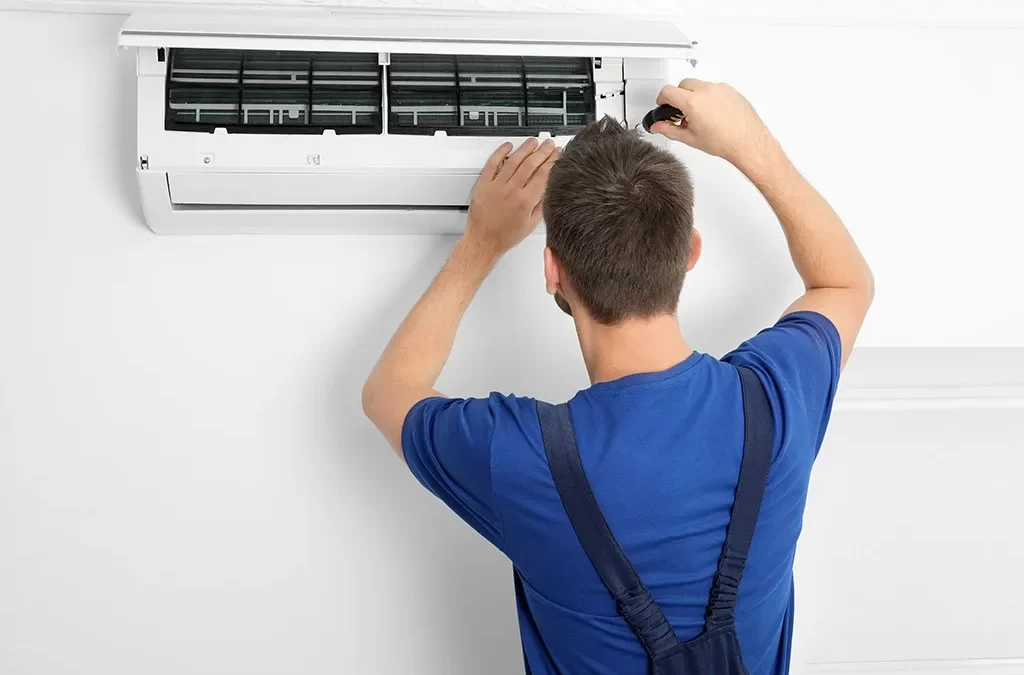Age Of Your HVAC System
The age of your HVAC system is one of the most significant indicators that it’s time to replace it. The average lifespan of an HVAC system is around 10-15 years. If your system is approaching or has exceeded this timeframe, it may be time to consider a replacement. Even if your HVAC system appears to be functioning correctly, older systems are often less efficient and could be costing you more money in energy bills.
Rising Energy Bills
If your energy bills have been steadily increasing despite not using more energy, it may be a sign that your HVAC system is no longer functioning efficiently. HVAC systems that are working harder to produce the same level of heating or cooling can increase energy consumption, resulting in higher bills. A new, more efficient HVAC system can save you money on energy bills over time.
Frequent Repairs
Frequent repairs to your HVAC system can also be a sign that it’s time to replace it. While some repairs may be necessary, too many repairs can add up quickly and become more expensive than a replacement. If you find yourself repairing your HVAC system more than once a year, it may be more cost-effective to replace it.
Uneven Heating Or Cooling
If some rooms in your home are too hot or too cold while others are comfortable, it may be a sign of an aging or malfunctioning HVAC system. Uneven heating or cooling can be caused by a variety of issues, including leaky ductwork, an improperly sized HVAC system, or a failing thermostat. In some cases, these problems can be fixed with repairs, but if they persist, it may be time for a replacement.
Strange Noises Or Odors
If you hear strange noises or notice unusual odors coming from your HVAC system, it could be a sign of a serious problem. Grinding, rattling, or squealing sounds may indicate a mechanical issue, while a musty or burning smell may indicate an electrical problem. These issues can be dangerous and should be addressed immediately. If your HVAC system is producing strange noises or odors, it may be time to replace it.
Poor Indoor Air Quality
Your HVAC system plays a crucial role in maintaining the indoor air quality of your home. If you notice an increase in dust, mold, or other allergens, it could be a sign that your HVAC system is no longer functioning correctly. Poor indoor air quality can cause health problems for you and your family, including allergies and respiratory issues. A new HVAC system with improved filtration and ventilation can help improve indoor air quality.
Inconsistent Temperature
If you’re experiencing inconsistent temperatures in different areas of your home, it could be a sign that your HVAC system is struggling to keep up with the demand. This could be due to a variety of factors such as improper insulation, ductwork issues, or a malfunctioning thermostat. If the problem persists despite repairs, it may be time to replace your HVAC system.
Outdated Technology
If your HVAC system uses outdated technology, it may not be as efficient or effective as newer models. Advancements in HVAC technology have made modern systems more energy-efficient and better at maintaining indoor air quality. Upgrading to a newer system can improve your home’s comfort while also reducing your energy bills.
Poor Airflow
If your HVAC system is struggling to distribute air evenly throughout your home, it could be a sign of an aging or malfunctioning system. Poor airflow can lead to hot and cold spots, reduced indoor air quality, and higher energy bills. A new HVAC system can improve airflow, resulting in better comfort and efficiency.
Excessive Humidity
If you’re experiencing excessive humidity in your home, it could be a sign that your HVAC system is struggling to dehumidify the air. High humidity levels can lead to mold growth, poor indoor air quality, and discomfort. If your HVAC system can’t keep up with dehumidification, it may be time to upgrade to a newer system that’s better equipped to handle humidity control.
Conclusion
Knowing when to replace your HVAC system can save you money, improve your comfort, and increase the lifespan of your system. If you’re experiencing any of these ten indicators, it may be time to contact an HVAC professional to discuss your options for replacement. With a new HVAC system, you can enjoy improved energy efficiency, indoor air quality, and overall comfort in your home.
FAQs
Q: How often should I replace my HVAC system?
A: The average lifespan of an HVAC system is between 10 and 15 years. However, the lifespan can vary depending on factors such as usage, maintenance, and the type of system. If you’re experiencing any of the indicators mentioned above, it’s a good idea to have your system inspected by a professional.
Q: How much does it cost to replace an HVAC system?
A: The cost of replacing an HVAC system can vary depending on factors such as the size of your home, the type of system you choose, and the level of installation required. On average, a new HVAC system can cost between $900 and $1700. However, investing in a new system can result in long-term energy savings and improved comfort.
Q: Can I replace my HVAC system myself?
A: It’s not recommended to replace an HVAC system yourself, as it requires specialized knowledge and tools. Additionally, improper installation can lead to safety hazards, reduced efficiency, and costly repairs. It’s best to consult with a licensed HVAC professional to ensure that your new system is installed correctly and operates safely.


